Google Nexus One owners share their likes and gripes
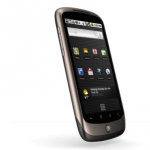
Earlier this week, I asked Betanews readers who had purchased Google's so-called "superphone" to offer up early impressions. You responded in comments and by e-mail. Thank-you. I apologize for taking so long getting your responses posted. For anyone with a Nexus One, in most states the return policy is 14 days (30 days here in California). Others' opinions could weigh heavily in your decision to keep the device. Then there are those of you considering plunking down a budget-busting $529 for the unlocked device. Ouch! I did!
I am generally satisfied with the Nexus One -- in part because of how Google has extended Android 2.1 to cloud services. While I find value in the hardware, software and services are where I find the greater reward, and it's why I have switched from the Nokia N900, which also runs on T-Mobile's 3G network.
Is Google Nexus One a bomb, or the bomb?
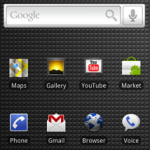
Silicon Alley Insider claims that Google's so-called "superphone" is a bomb, based on the first week of sales; Nexus One has no superpowers, whatsoever. I totally disagree. Nexus is the bomb. It's simply better than iPhone 3Gs or Nokia's flagship N900. Nexus One is smokin'. First week sales figures are to be expected, and Google showed real finesse by wisely taking a low-key approach to the device's launch.
Jay Yarow's headline seemingly says it all: "The Nexus One Bombs: Only 20,000 Sold In First Week." But there's more. He writes in the text that "these estimates are bad for Google. The company had plenty of hype gearing up for the launch of the phone. It put an ad on its homepage, and it sprayed its ads all over the web. Given all the hype, these sales numbers are pathetic."
Google does the right thing in China, but is it for the right reasons?

Four years ago this month, Google controversially started censoring search queries in China at the local government's request. Microsoft and Yahoo soon followed. Today, in a stunning blog post, Google Chief Legal Officer David Drummond writes: "We have decided we are no longer willing to continue censoring our results on Google.cn, and so over the next few weeks we will be discussing with the Chinese government the basis on which we could operate an unfiltered search engine within the law, if at all. We recognize that this may well mean having to shut down Google.cn, and potentially our offices in China."
Google's seemingly altruistic gesture is as much about business priorities as was the original decision to censor search results in China. Otherwise Google wouldn't have given in to Chinese government demands four years ago.
iTunes pricing is out of control

Succinctly stated: You pay more.
Apple has a reputation for charging more for most everything, while often delivering less than competitors. Any Windows PC-to-Mac laptop pricing comparison is example enough. The Windows computer typically comes with higher-resolution display, more system memory and beefier storage than comparatively-priced Mac portable.
Please tell us your Google Nexus One story

Last week, Betanews founder Nate Mook and I both purchased Google Nexus One phones. Nate is coming from iPhone, and I have been using the Nokia N900. We haven't yet coordinated our reviews, or how we'll write them (separately or together), but they're coming sometime this week. Why should Nate and I have all the fun when you could join in, too? So this is a call for Betanews readers with Nexus Ones to share your experiences, either in comments below or by sending me e-mail.
To start the discussion, I'll offer a few first impressions. I ordered the Nexus One during Google's event last week, before the invited attendees got their free review units. Google shipped the phone by free FedEx overnight, so I began using the so-called "superphone" on Wednesday (January 6). Google impressed with the simple ordering process and prompt delivery.
Google lacks Humanity
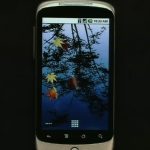
One classic Star Trek episode asks: "Is there in truth no beauty?" For most people, the answer is no, and that's something Google had better come to understand as it releases more consumer products. Successful brands and products are all about humanity, about assigning human attributes to them, about making people feel good. Most people make purchase decisions -- even seemingly intellectual ones -- for emotional reasons.
Since Wednesday, I've been using Google's Nexus One, which could replace the Nokia N900. Nexus One is simply the best smartphone I have ever used, yet I struggle to want to keep it. There is something missing about the device. My initial excitement about Nexus One ended with the unboxing. I looked at the device and went, "Huh?" Nexus One looks so drab, so utilitarian. I searched the box for a "Designed by Dell" logo. For years, drab defined Dell industrial design, and that's exactly how I felt when first looking at the Google phone: Designed by Dell. That's no compliment.
Three post-CES goals for Microsoft

This weekend, following the Consumer Electronics Show 2010, is when Microsoft executives should reassess the company's New Year's resolutions and reevaluate marketing and product development strategies. CES hasn't been particularly great for Microsoft, although it wasn't terrible either. Windows 7 Mobile was, once again, largely a no show. CEO Steve Ballmer's keynote failed to dazzle with exciting new products. Still, Bill Buxton, Principal Researcher for Microsoft Research, offered real vision discussing natural user interfaces. NUI is a great marketing concept, too.
I suggest three goals Microsoft should set for the next six months, until the end of fiscal 2010 on June 30 (I originally planned five but decided the post would be too long). They are presented in no order of importance.
Why Steve Ballmer's CES keynote was boring: Microsoft is looking back, not forward

Three things were missing from Microsoft's Consumer Electronics Show 2010 opening keynote: Vision. Vision. Vision. OK, that's one thing times three, but o-o-oh was it missing. What wasn't missing: Microsoft's investment in the past.
The keynote, featuring CEO Steve Ballmer and accompanied by Entertainment & Devices president Robbie Bach, trumpeted what Microsoft long ago called "better together" -- a term that may be as much relic at the company as the strategy should be. Who knows what term Microsoft now uses for the strategy, which is about making Product A better by connecting it to Product B, or C. Better together is a sensible marketing strategy, but from a product development perspective worked -- ah, better -- for Microsoft when it was a growth company.
Apple and Microsoft beware: Google will be an unstoppable force in mobility

Microsoft and Apple seem to underestimate how quickly Google is consolidating its mobile platform -- clearly so do geeks reviewing Nexus One. Google isn't just going for one piece of mobility but the whole shebang. Goggle is putting together the pieces to offer a single mobile lifestyle, with no PC required, supported by search and other Google informational services. Like everything else Google does, free is the glue sticking everything together.
Google's decision to sell Nexus One direct, even the carrier subsidized model, is part of the strategy. Open-source licensing has its limitations and risks fragmenting Android. As I explained in March 2009 post "There's an App for That," Apple changed the rules for mobile operating systems by breaking carrier control over updates. Apple distributes iPhone OS updates, preventing the kind of fragmentation typically caused by carrier distribution. By selling a handset direct, Google takes control of Android updates for a flagship phone that also acts like a baseline design model for handset manufacturers licensing the mobile operating system.
Google soars past Apple and Microsoft with Nexus One superphone

Today's Google Nexus One launch is as game changing as Apple's June 2007 release of the iPhone. Perhaps, Nexus One is more important, although judging from blogs and tweets, geekdom doesn't yet get it. Apple supercharged the smartphone category with a more natural user interface. Suddenly, there was a new way to interact with a mobile phone that was seemingly magical. Today, Google turned on the superpowers, by finally starting to integrate cloud services into its mobile platform in a hugely useful way. Additionally, Google is transcending the limitations of one natural user interface by extending the capabilities of another.
With Nexus One and Android 2.1, Google is doing what Microsoft failed to with its March 2007 Tellme acquisition: Offer a more natural mobile phone user interface. Voice should have been it, but Microsoft failed to bring the technology to Windows Mobile in a big way. By comparison, Google has been hot on voice search, which promises to be much better on Nexus One and other handsets running Android 2.1. Google is extending voice search to other services, which just last week I blogged the information giant should be doing.
Can big trade shows survive Apple and Google?
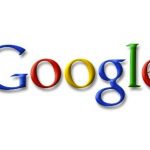
How strange is it that perhaps the two biggest product announcements this month will come right before major trade shows, rather than during them? In less than two hours, Google is expected to officially launch the Nexus One smartphone at an event in Northern California. The Consumer Electronics Show kicks off with tomorrow night's Microsoft CEO Steve Ballmer keynote. Apple is expected to unveil some new product, presumably a tablet PC, during another Northern California event on January 27. Macworld Expo opens about two weeks later.
The separate event strategy is about managing the message -- controlling mindshare -- being the one and only voice instead of one of many. The problem with big trade shows is the size. There are so many new product announcements, many good ones get lost in the noise. By holding separate big events, Apple and Google can capture the most publicity for the buck -- as in what they spend to host their own events and what they don't spend to attend the trade show or for additional marketing. It's a strange turnaround. Tech companies are supposed to ride the tradeshow's coattails by attending the event.
5 things I know to be true about the Apple tablet

If you're looking for leaked Apple tablet product specs and photos, this post isn't for you. But if you're interested in a hearty (and discussion disrupting) list describing what the product's impact already is (and will be, if released), please read on.
1. It's mythical. Like the sasquatch, unicorns or alien invaders (yeah, yeah, the truth is out there), the Apple tablet doesn't exist until someone finds one. Sure there are rumors and unconfirmed sightings. But no one outside Apple or its NDA-bound partners/developers really knows what it is, or if it really exists. The government may have successfully guarded its Area 51 secrets (downed alien aircraft or U.S. test plane?), but the G-Men are in many respects no match for Apple. No one protects super secret projects like Apple. Much of the information out there is likely false.
What you want from an Apple tablet
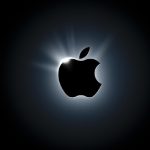
Yesterday's request for Betanews readers to answer "What would you use an Apple tablet, or any other, for?" has brought plenty of answers, perhaps because the post -- "The world doesn't need an Apple tablet, or any other" -- was so provocative. I wrote that post to bring some sanity to the outrageously loud Apple tablet hype. Instead, the post stirred up geek emotions and several, pointed rebuttal blogs (Marc Flores, Robert Scoble and MG Siegler, among others). I won't defend yesterday's post here. It stands or falls on its merits.
But I do want to call out some readers' responses about what they would do with an Apple tablet. As I write, there are 119 comments, which is enough for some of the best ones to get lost. I want to thank you all for sharing your enthusiasm about the mythical Apple tablet and what you would do with it. Some of the best comments were simply too long to present here; my apologies for omitting them. They could have been separate posts, and maybe they should be. The comments collected here are presented randomly.
The world doesn't need an Apple tablet, or any other
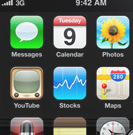
Apple's rumored tablet computer cannot live up to the hype, which has reached almost ridiculous levels of rumor, speculation and anticipation. The rumored tablet will fall short of expectations, because they are simply too unrealistic. What surprises me most about the excitement and early analyst sales projections: No one is talking about addressable market.
So I'll assert what should be obvious to anyone thinking rationally and not emotionally: Tablet is a nowhere category. For all the hype about an Apple tablet , it is at best a niche product. The world doesn't need an Apple tablet, no matter what the hype about rumored features or regardless of what actually releases (if anything).
Ten resolutions Microsoft should make for 2010

Each year, I offer a list of things Microsoft should do in the coming year, in lieu of making predictions. It's a bit arrogant to tell Microsoft what to do, but I've got a good track record of giving advice that is right. The year ahead will be challenging for Microsoft, as the company struggles against weak global economies and to successfully launch cloud services.
Ten resolutions aren't enough. I had to ignore so many others, such as keeping CEO Steve Ballmer (don't fire him!) or uniting Xbox and Zune (something already underway). The list is in order of importance, from least to most, from 10 to 1.
Joe's Bio
Joe Wilcox is BetaNews executive editor. His motto: Change the rules. Joe is a former CNET News staff writer, JupiterResearch senior analyst, and Ziff Davis Enterprise Microsoft Watch editor.
Ethics Statement© 1998-2025 BetaNews, Inc. All Rights Reserved. About Us - Privacy Policy - Cookie Policy - Sitemap.
